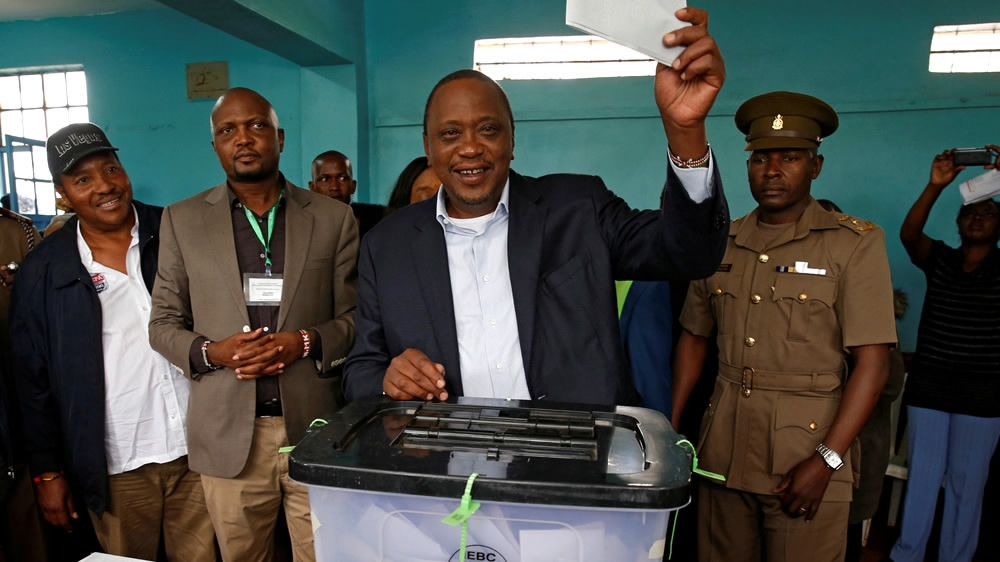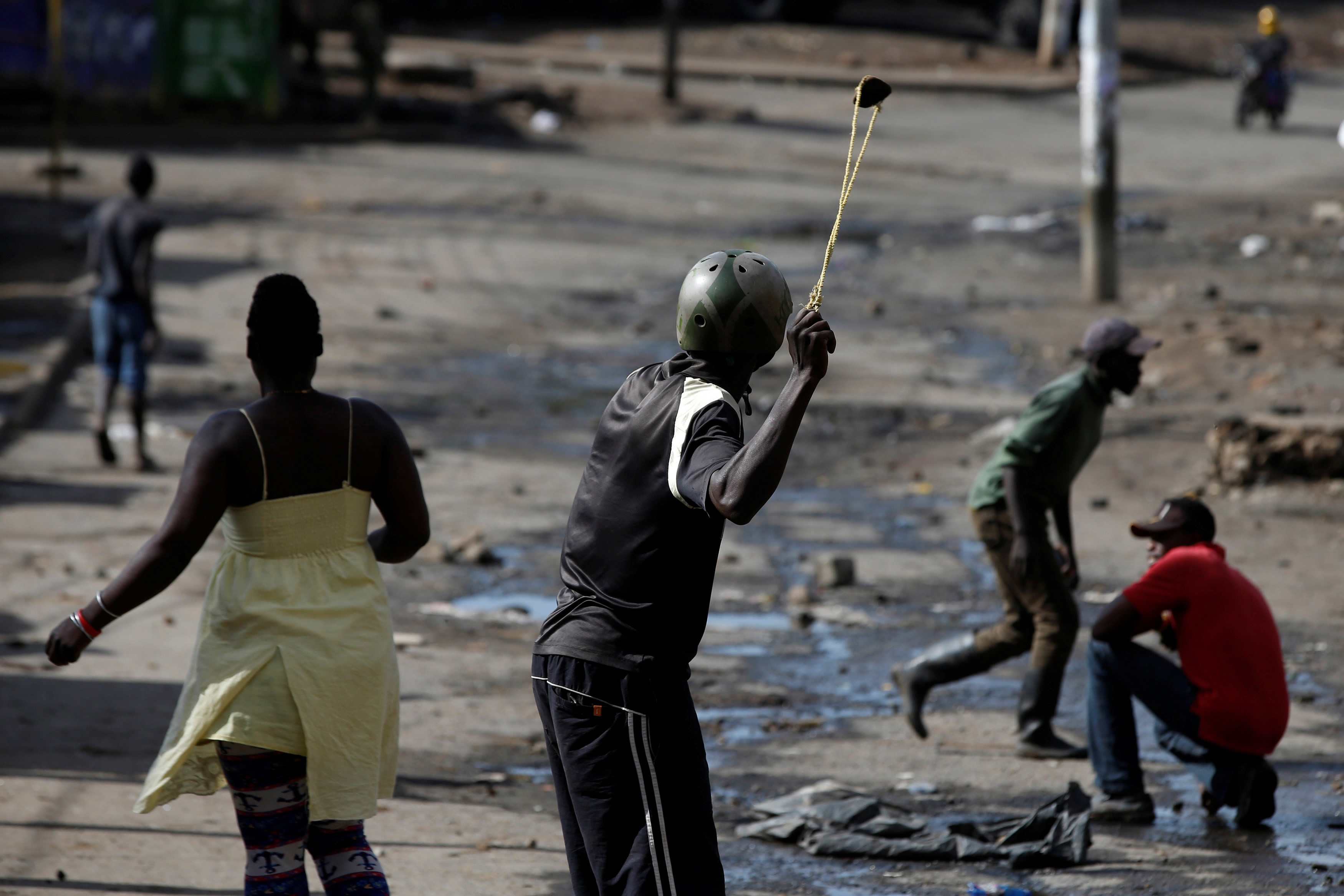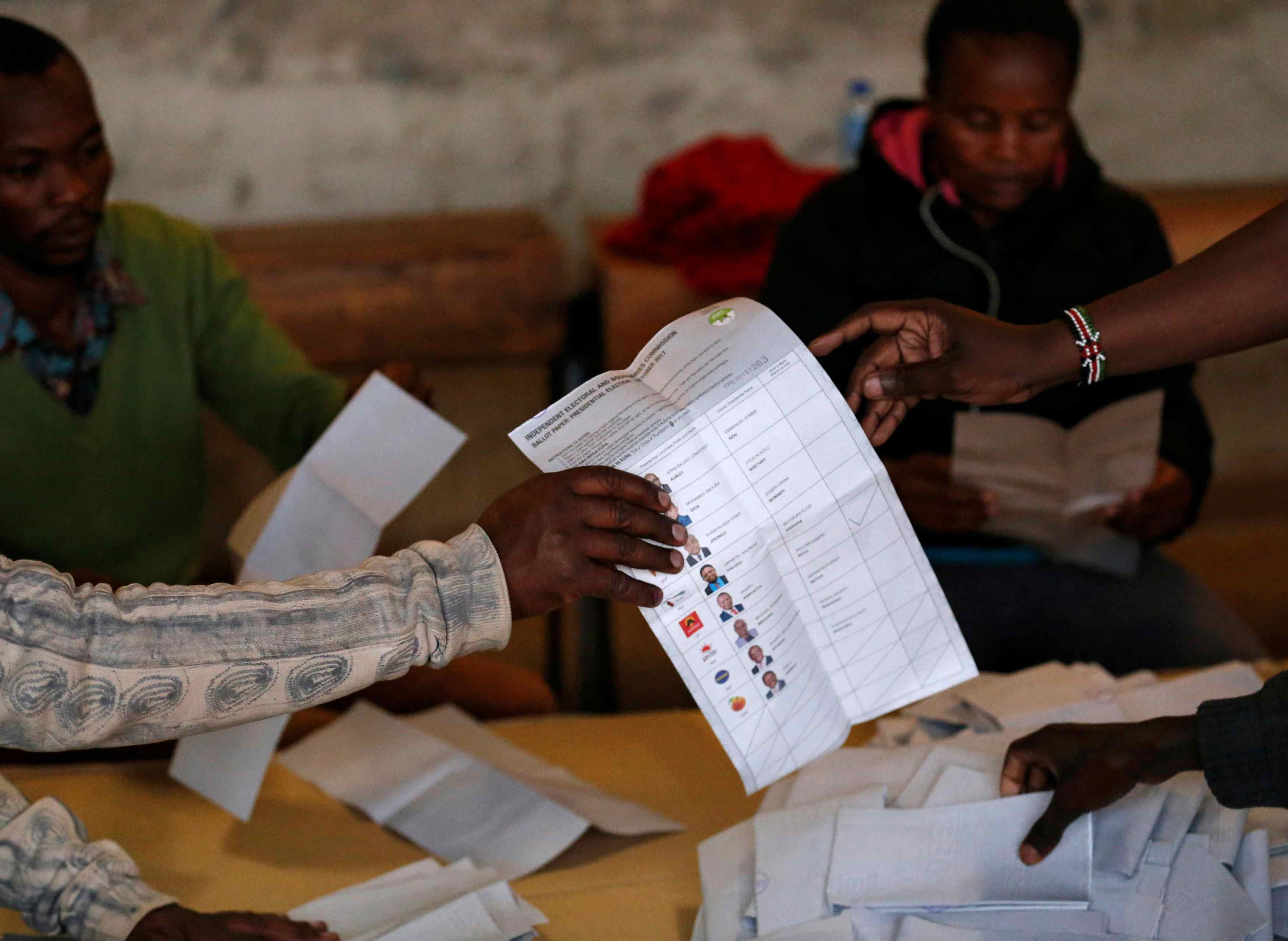
Politics
08:01, 27-Oct-2017
Kenyan president ahead with 96% support in re-run election
By Jane Kiyo, Meng Yaping

Kenya's President Uhuru Kenyatta has won over 96 percent of the votes counted so far from Thursday's re-run election, according to a local media tally of numbers released at the constituency level by the election commission.
The tally, compiled by the Daily Nation media group with 200 of 292 constituencies having reported, showed Kenyatta had won 5.58 million votes, well ahead of rival Raila Odinga, who has boycotted the process.
However, the nationwide turnout was estimated at just 34.5 percent, dealing a blow to Kenyatta's hopes for a decisive second-term mandate.

Opposition supporters protest in the slum area of Mathare in Nairobi, Kenya, October 26, 2017. /Reuters Photo
Opposition supporters protest in the slum area of Mathare in Nairobi, Kenya, October 26, 2017. /Reuters Photo
The election commission said more than one in 10 polling stations failed to open due to "security challenges." Its chairman, Wafula Chebukati, tweeted overnight that 6.55 million ballots had been cast – just 34.5 percent of registered voters.
Election officials postponed voting in the trouble-spots – all staunchly pro-Odinga districts – for 48 hours although the delay is unlikely to make any difference.
In all, four people were shot dead by police – three in the pro-Odinga western city of Kisumu, governor Anyang Nyong'o said, and one in the neighboring county of Homa Bay, police said.
Around 50 people have been killed, mostly by security forces, since the original August 8 vote, raising fears of sustained violence only a decade after 1,200 people were killed in serious ethnic fighting triggered by another disputed vote.

Election officials count ballot papers during Kenya's presidential election in Nairobi, October 26, 2017. /Reuters Photo
Election officials count ballot papers during Kenya's presidential election in Nairobi, October 26, 2017. /Reuters Photo
"We're tired as a country of electioneering. It's time we moved forward. It’s my hope that the country will move forward," Kenyatta urged all people to accept the result earlier.
International monitors were quick back in August to give a positive verdict on a vote – that was later nullified in court.
This time, they’re more cautious.
What matters for the country and the region is whether the end result is credible – and crucially whether the next government is accepted as legitimate.
Liu Guijin, former Chinese ambassador to South Africa, told CGTN that Kenya's democracy is in deep crisis.

"It is the case, the turmoil of the second round of voting does indicate that the system does not adapt to the current situation of Kenya," Liu said. "The consequence is not good for the nation. There might be another round of political crisis. Now the country is divided, which is not good for the development, social and diplomatic image of Kenya."
The former ambassador also spoke of the impact the political divide might bring to the country's economy, social unity and diplomacy if Kenyatta is re-elected.
"The opposition will continue to boycott the outcome of the voting and call on the people not to cooperate with the government. It will definitely send a negative signal to further investments to Kenya," he noted, adding that the political uncertainty will create some problems for the country's poverty situation.
"Friends of Kenya, including China, all wish that the political leaders of different parties will take the overall interests of the Kenya people as their priority and they could resolve their problems and differences through dialogues and peaceful means," Liu said.
(With inputs from Reuters)

SITEMAP
Copyright © 2018 CGTN. Beijing ICP prepared NO.16065310-3
Copyright © 2018 CGTN. Beijing ICP prepared NO.16065310-3